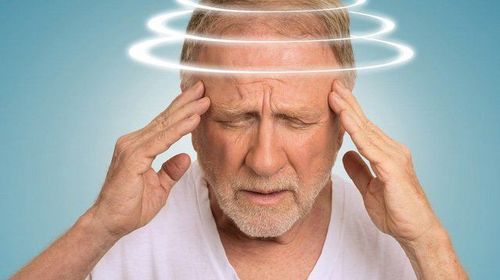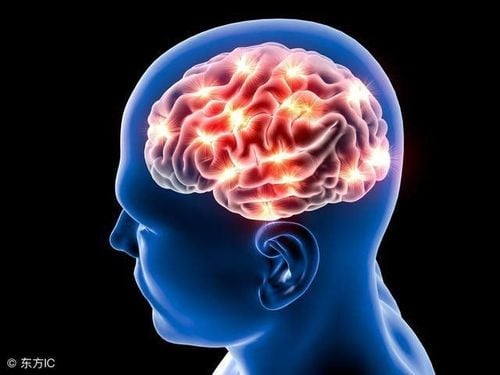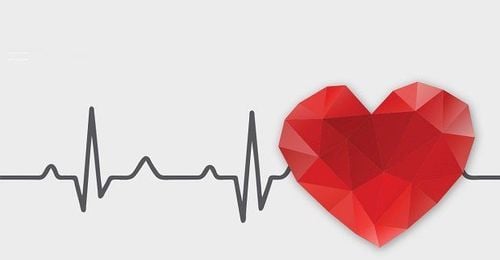Article reviewed by Specialist Level II, Dr. Phạm Thị Sơn - Department of Outpatient and Internal Medicine, Vinmec Hai Phong International General Hospital.
Vestibular disorders, often associated with conditions like cerebral ischemia, diabetes, and hypertension, can lead to severe complications such as stroke, posing significant risks to patients. So, what are vestibular disorders, and how are they classified?
1. What Are Vestibular Disorders?
The vestibular system, a part of the nervous system located behind the cochlea in both ears, plays a crucial role in maintaining body balance. It supports equilibrium in various positions, activities, and coordination between different parts of the body, such as the eyes, hands, legs, and trunk.
Vestibular disorders occur when the process of transmitting and receiving information in the vestibular system is disrupted or blocked. This may result from damage to the cranial nerve No.VIII, the arteries supplying the brain, or other injuries in the inner ear or brain. These disorders impair the body's ability to maintain balance, leading to symptoms such as dizziness, vertigo, tinnitus, nausea, and unsteadiness. These symptoms often appear suddenly, recur frequently, and severely affect the patient’s quality of life and ability to work.
2. Classification of Vestibular Disorders

There are two main types of vestibular disorders:
2.1. Peripheral Vestibular Disorders
These originate from damage to the vestibular system in the inner ear. Symptoms are typically pronounced, with patients experiencing severe dizziness and loss of balance. However, they are not life-threatening. This is the most common type of vestibular disorder.
2.2. Central Vestibular Disorders
These stem from damage to the vestibular nuclei in the brainstem or cerebellum. Although less common and with milder symptoms, this type tends to be more dangerous and harder to treat compared to peripheral vestibular disorders.
3. Causes of Vestibular Disorders
3.1. Causes of Peripheral Vestibular Disorders
Vestibular Neuritis: Often caused by viruses like herpes zoster, chickenpox, or mumps (accounting for approximately 5% of cases). It results in sudden, prolonged dizziness but does not affect hearing (unlike Ménière’s disease).
Metabolic Disorders: Such as diabetes, uremia, or hypothyroidism.
Other Causes:
-Ménière’s disease: Swelling in the inner ear.
-Acute or chronic otitis media.
-Inner ear abnormalities.
-Trauma to the inner ear.
-Vestibular schwannoma (acoustic neuroma).
-Otolith (ear stones) displacement.
-Side effects of medications (e.g., streptomycin, gentamicin), alcohol, or narcotics.
-Motion sickness.
-Visual disturbances, such as diplopia (double vision).
3.2. Causes of Central Vestibular Disorders
-Vertebrobasilar insufficiency.
-Orthostatic hypotension.
-Wallenberg syndrome.
-Cerebellar infarction.
-Multiple sclerosis.
-Cerebellar tumors.
-Migraine.
-Parkinson’s disease.
-Neurosyphilis.
3.3. Risk Factors for Vestibular Disorders
- Age: While vestibular disorders can affect individuals of any age, older adults are at a higher risk. Approximately 35 out of 100 people over the age of 40 experience vestibular disorders.
- History of Dizziness: Individuals with a history of dizziness are more likely to experience symptoms such as lightheadedness, vertigo, and loss of balance in the future.
- Note: When you have the above signs of vestibular disorders or any unusual changes in your body, you need to see a doctor as soon as possible so that doctors can examine, diagnose and have timely treatment methods.

4. Symptoms of Vestibular Disorders
Symptoms depend on the severity of the condition, and individuals may experience different manifestations.
4.1. Symptoms of Peripheral Vestibular Syndrome
Vertigo: Patients may feel as though their surroundings are spinning, especially when changing positions abruptly, such as standing up or lying down.
- Loss of Balance: Unsteadiness, dizziness, and difficulty standing.
- Visual Disturbances: Blurred vision or loss of orientation.
- Hearing Issues: Tinnitus. If symptoms persist, they can lead to hearing loss or even deafness. Patients may hear sounds like crickets or buzzing, particularly at night.
- Nystagmus: Rapid, involuntary eye movements.
- Nausea or Vomiting.
- Fatigue and Insomnia.
- Hypotension.
4.2. Symptoms of Central Vestibular Syndrome
- Mild Vertigo: Patients may feel a sense of floating or swaying rather than severe spinning.
- Hearing Loss: Including tinnitus and reduced hearing ability.
- Multi-Directional Nystagmus: Including vertical nystagmus.
- Unsteady Gait: Resembling intoxication, with zigzag walking patterns.
- Lack of Motor Coordination: Difficulty performing precise movements, such as flipping hands or touching one’s nose.
- Speech Changes: Alterations in pronunciation of certain sounds, such as “O.”
5. Diagnosing Vestibular Disorders
- Electroencephalography (EEG): Using small electrodes around the eyes to measure eye movements and assess vestibular or neurological dysfunction.
- Rotational Chair Test: Evaluates eye and ear functions using video goggles or electrodes to monitor eye movements.
- Otoacoustic Emissions Test: Assesses cochlear hair cell response to sound stimuli via a small speaker placed in the ear canal.
- MRI Scan: Produces detailed cross-sectional images of body tissues to detect tumors, strokes, or other abnormalities causing dizziness or fainting.
6. Effective Treatments for Vestibular Disorders
- Follow Medical Advice: Take medications as prescribed by your doctor. Dosage and type of medication depend on clinical examinations and diagnostic results.
- Vestibular Rehabilitation Exercises: Designed to improve coordination among body parts and enhance the brain’s processing of vestibular signals.
- Regular Exercise: Promotes overall health, improves blood circulation to the brain, and reduces stress and anxiety.
- Balanced Lifestyle: Ensure a healthy balance between work and rest.
- Healthy Diet: Consume a balanced diet rich in fruits and vegetables, while avoiding oily, greasy foods.
- Surgical Intervention: If other treatments fail, surgery may be recommended.
Vestibular disorders involve disruptions in the transmission or reception of information in the vestibular system due to damage to the 8th cranial nerve, brain arteries, or inner ear and brain structures. These disorders can lead to severe complications, including stroke. Early diagnosis and treatment are essential to prevent adverse outcomes.
Vinmec International General Hospital offers comprehensive diagnostic, treatment, and preventive care for various medical conditions. Patients benefit from state-of-the-art equipment, modern facilities, and expert care provided by highly trained specialists.
To arrange an appointment, please call HOTLINE or make your reservation directly HERE. You may also download the MyVinmec app to schedule appointments faster and manage your reservations more conveniently.
















